
5-26 #Future : Samsung has already started the development of a 2nm chipset; Samsung Display is reportedly collaborating with Lenovo to develop slidable display devices; TCL has unveiled the world’s first 7.85” tri-foldable smartphone; etc.

Samsung Electronics has already started the development of a 2nm chipset as competition with Apple and TSMC heats up. Samsung has said it would mass-produce the 2nm process for mobile applications in 2025. The process is claimed to showcase a 12% increase in performance, a 25% increase in power efficiency, and a 5% decrease in total area. Samsung began the 2nm AP (application processor) project codenamed “Thetis”, which is believed to be the Exynos 2600 — the flagship chipset likely to debut with the Galaxy S26 series in 2026. Assuming all goes well with testing, Samsung will reportedly be one of the first to bring the commercialized 2nm-based chip, following a likely 3nm chip arriving with the Galaxy S25 in 2025. (ET News, Android Central, GSM Arena)

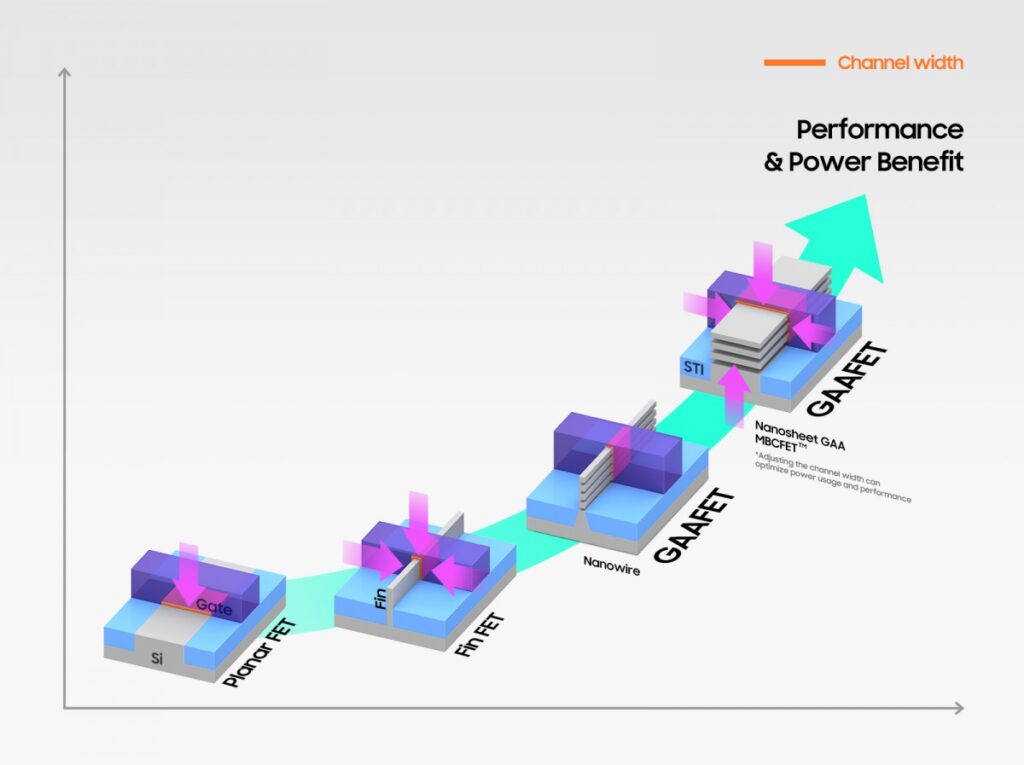
The global foundry industry’s revenue declined about 5% QoQ but grew 12% YoY in 1Q24, according to Counterpoint Research. The sequential decline in the industry revenue in 1Q24 was not solely due to seasonal effects. It was also impacted by a slower recovery in demand for non-AI semiconductors, spanning sectors such as smartphones, consumer electronics, IoT, automotive, and industrial applications. This trend resonates with the observations of TSMC’s management regarding the sluggish pace of recovery in non-AI demand. Consequently, TSMC has revised down the projected growth for the logic semiconductor industry from over 10% to 10% in 2024. (Android Headlines, Counterpoint Research)
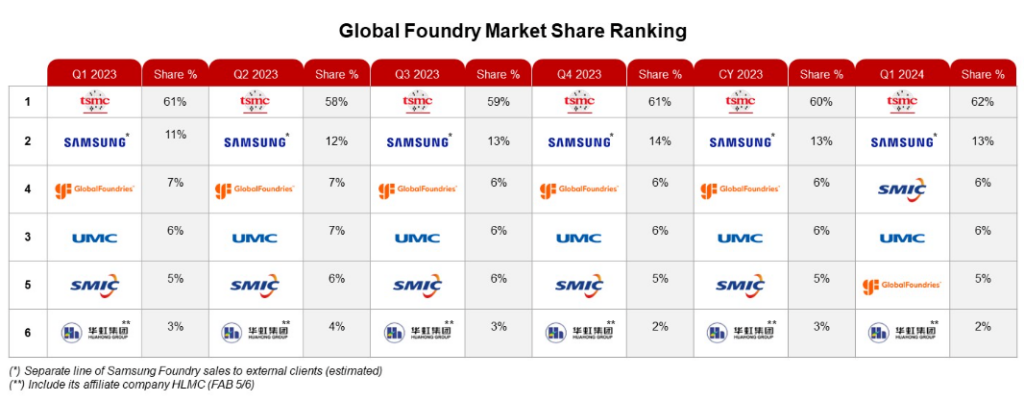
Apple COO Jeff Williams has allegedly visited Taiwan to meet with TSMC’s president CC Wei. The low-profile visit was made to secure TSMC’s advanced manufacturing capacity, potentially 2nm process, booked for Apple’s in-house AI-chips. Apple has been collaborating with TSMC for many years on the A-series processors used in iPhones. In recent years, Apple initiated the long-term Apple Silicon project, creating the M-series processors for MacBook and iPad, with Williams playing a key role. (Android Headlines, Android Authority, UDN, 9to5Mac, TrendForce)
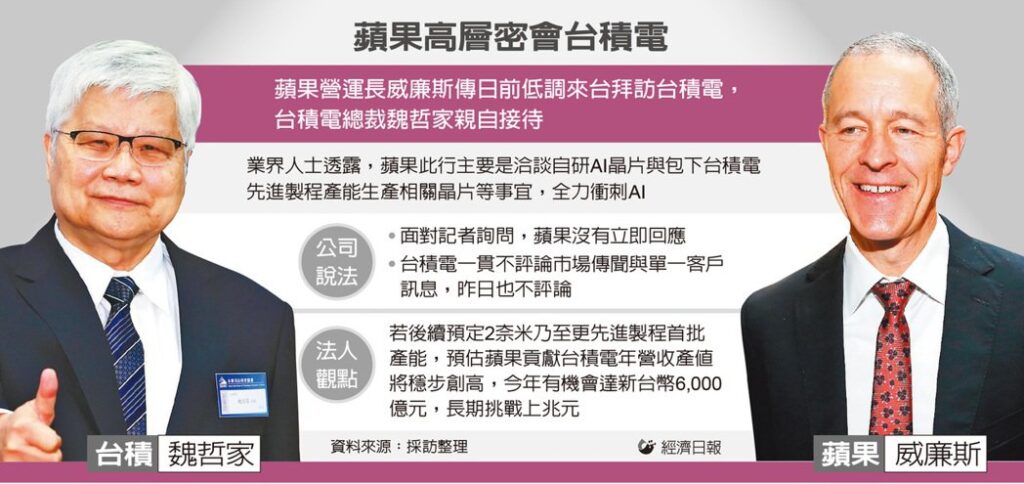
Google’s custom Tensor processors have been developed in close collaboration with Samsung’s foundry division since the first generation chip back in 2021. Google Tensor G5, which is believed to power Google Pixel 10, will allegedly be manufactured by TSMC, making it Google’s first chip made without Samsung. (Android Authority)
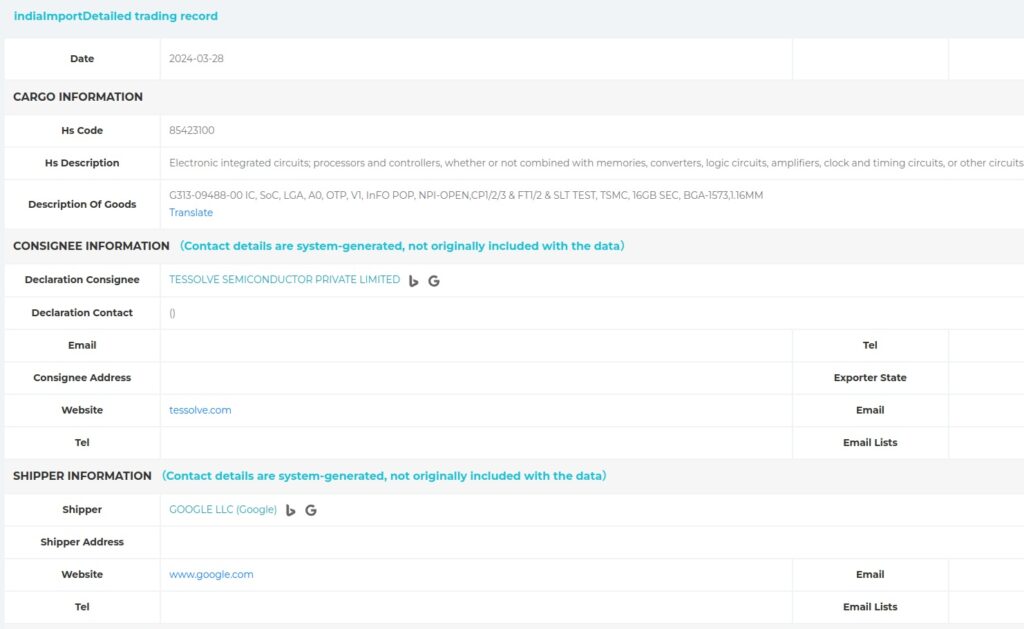
South Korea has announced a KRW26T (USD19B) support package for its chip businesses, citing a need to keep up in areas like chip design and contract manufacturing amid “all-out warfare” in the global semiconductor market. Under the package, President Yoon Suk Yeol said a financial support programme worth about KRW17T was planned through state-run Korea Development Bank to back investments by semiconductor companies, according to the presidential office. South Korea’s share of the global fabless sector, which is dominated by companies like U.S. giant Nvidia, opens new tab that design chips but outsource manufacturing, stood at about 1%, Yoon’s office said. There was also a gap between local chipmakers and the leading contract chip makers like Taiwan’s TSMC. Yoon said a KRW1T fund would be set up to support equipment makers and fabless companies. (WSJ,Engadget, Bloomberg, Reuters)

According to Canalys, Huawei shipped 8M Kirin units in 1Q24, generating USD6B in revenue. Canalys analytical data highlights that Huawei HiSilicon stands at the sixth rank in the 1Q24 global smartphone chip market. It scored 2.7% of the market share. Huawei has surpassed Google’s chipset shipments and revenue in 1Q24. Google only shipped 2M of its smartphone SoCs and generated USD2B in revenue from it. MediaTek has ranked first in this listing with 114M unit shipments, while Qualcomm is standing in second position with a shipment of 75M units. Both obtained 17 and 11% market share, respectively. (Huawei Central, MyDrivers, WCCFTech, Gizmo China)
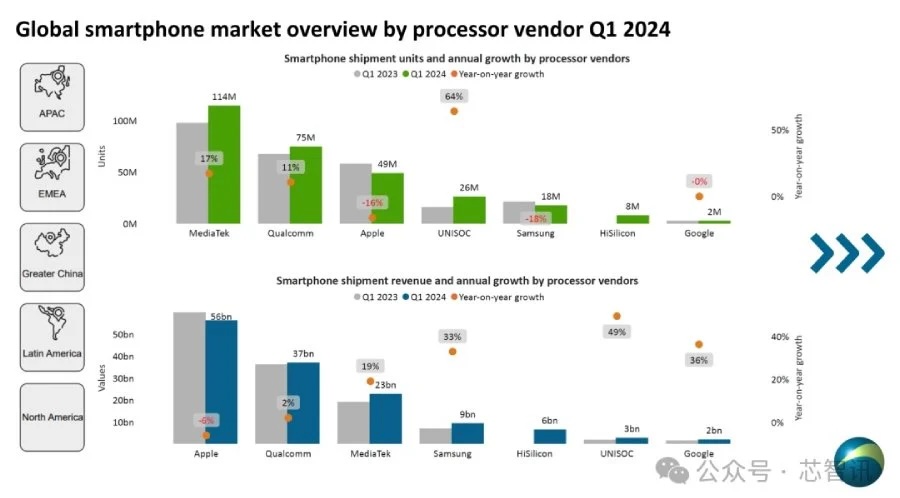
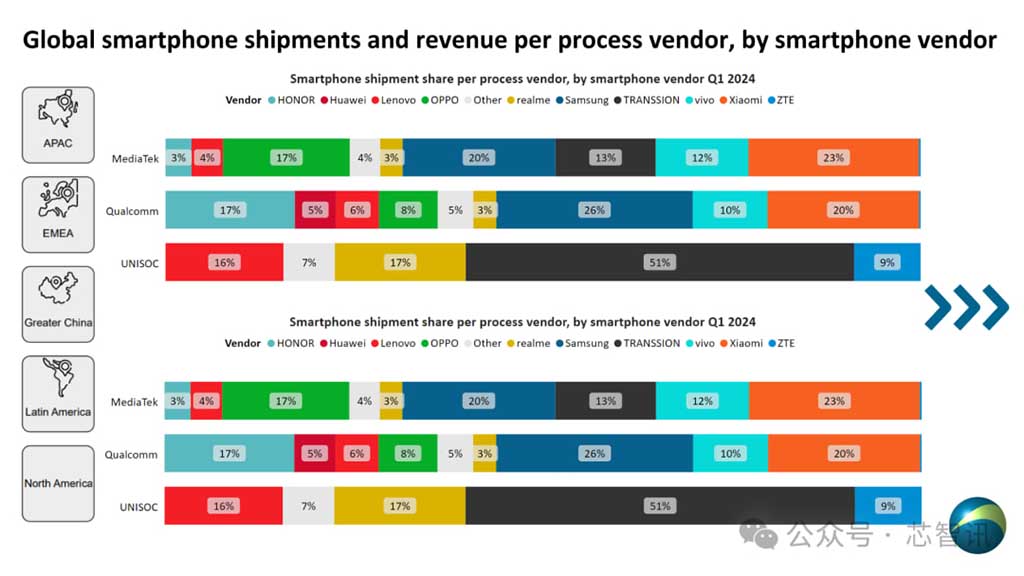

Samsung Display (SDC) is reportedly collaborating with Lenovo to develop slidable display devices, suggesting that devices capable of extending the screen by pulling it are about to be commercialized. , SDC has decided to commercialize slidable displays and is gearing up to mass-produce the required panels. The final products are slated to be launched through Lenovo in late 2024 or early 2025. Based on the prototype of the slidable display previously showcased by SDC, the display measures 13” when not extended and can reach 17” when fully extended. The final product might represent a new type of device that combines the functionalities of a tablet and a notebook. Reportedly, SDC and Lenovo plan to incorporate a stylus into this product. (Android Headlines, Patently Apple, Twitter, Digitimes, Sammy Fans, ET News)
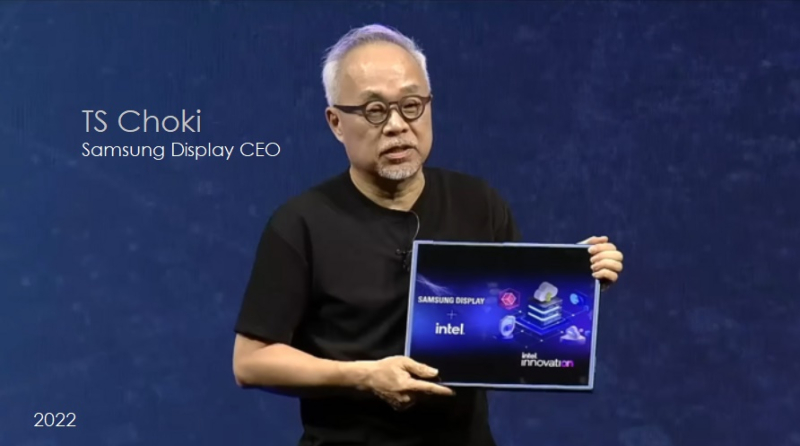
Honor is reportedly announcing its first flip phone, which will feature a massive cover display. The cover display on the phone will go around the circular camera island, and that display will be quite massive. There will be a tiny bezel at the bottom, but other than that, and the camera island, everything else is reserved for the display. (Android Headlines, Tech Outlook, Weibo)

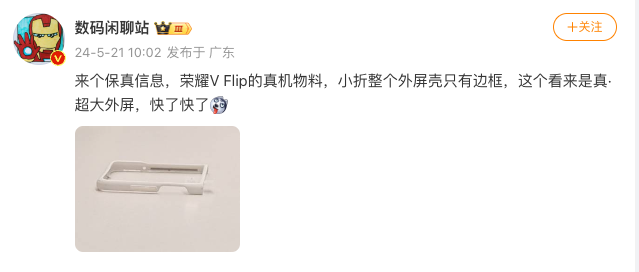
According to TF Securities analyst Ming-chi Kuo, LG Display (LGD) is the exclusive panel supplier for Apple’s foldable MacBook. In addition to the 20.25” option, Apple is also considering using an 18.8” panel instead. The difference between these two sizes is their folded form factor, corresponding to the design of 14–15” and 13–14” laptops, respectively. The target mass production schedule for the panel and assembly is 4Q25 and 1H26, respectively (compared to the previous estimate of 2027). This product is expected to use the M5 series processor. Current preliminary estimates put the panel and hinge costs at around USD600–650 and USD200–250, respectively. LGD and Amphenol are the exclusive development partners for the panel and the hinge, respectively. (Twitter, Medium)
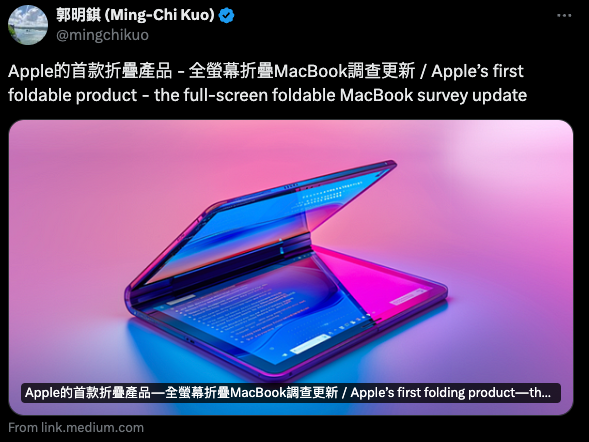
TCL has unveiled the world’s first 7.85” tri-foldable smartphone. The tri-foldable display, dubbed “Free-type,” is TCL CSOT’s self-developed technology that supports both “G-shaped” and “Z-shaped” folding configurations. This flexibility allows the screen to be fully flattened, with a ratio that closely resembles the current mainstream tablet display ratio. The screen’s ability to adapt to different folding patterns provides users with a unique and versatile mobile experience. The tri-foldable display incorporates multiple low-power technologies, including Tandem, LTPO, and PLP. These technologies not only enable high brightness but also offer the advantages of low power consumption and long life. It is only 472 microns thick, less than 0.5mm. TCL CSOT has also showcased the world’s first 7.85” under-screen face authentication flexible screen. This innovative technology adopts a SUP (Sensor under panel) design, which enables a seamless and secure biometric authentication experience. (GizChina, My Drivers, GizChina, ShiftDelete)
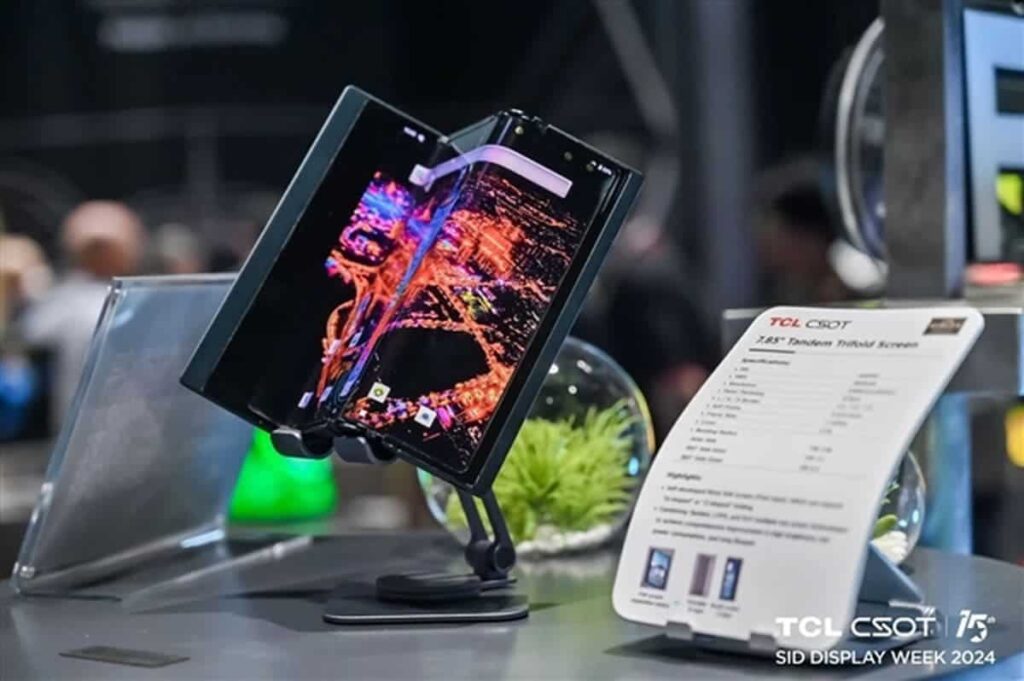
Ross Young of DSCC (Display Supply Chain Consultants) analyst Ross Yong has revealed that Xiaomi, Huawei, and Honor are all gearing up to launch their own iterations of the popular flip phone form factor, reminiscent of the Motorola RAZR and Samsung Galaxy Z Flip. (GizChina, Twitter, HDBlog)
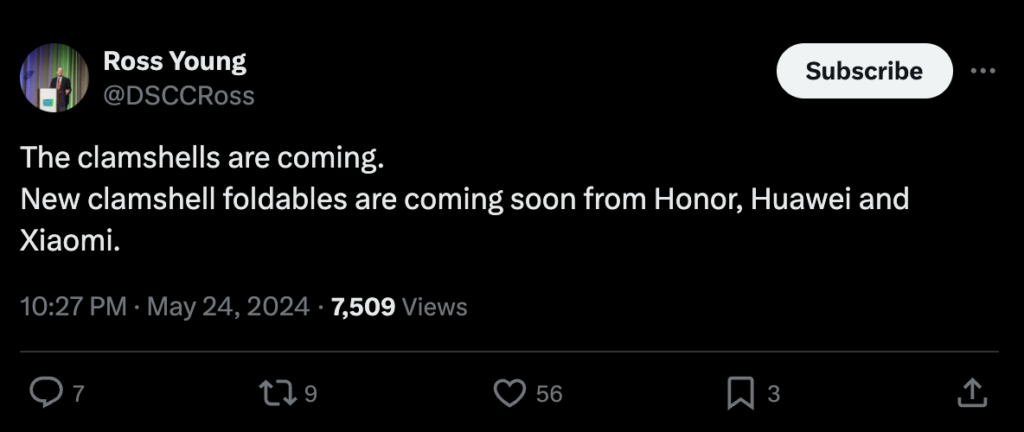
Apple has allegedly requested OLED display panels designed for future iPad mini models from its suppliers. Samsung Display has reportedly started developing sample 8” OLED panels for a future iPad mini in Apr 2024, with plans to initiate mass production at its facility in Cheonan in 2H25. The move is also apparently visible in Samsung’s own supply chain in Korea. Samsung already supplies Apple with OLED panels for the new iPad Pro, which features a tandem design for improved brightness and power efficiency. The report adds that Apple will bring an OLED panel to the iPad Air alongside the iPad mini in 2026. (GizChina, MyDrivers, TechNews, ZDNet, 9to5Mac, ET News, MacRumors)


Apple’s iPhone 16 Pro and Pro Max will allegedly get some camera upgrades. Both the Pro and Pro Max are said to be getting a 48Mp ultrawide camera, which would be a first for Apple. For comparison, the iPhone 15 Pro models feature a 12Mp ultrawide lens. The main camera of Pro Max will be based on an advanced custom 48Mp Sony IMX903 sensor. Conversely, the iPhone 16 Pro could get the same 48Mp custom Sony IMX803 main camera featured in the current Pro models. (Android Authority, Weibo)
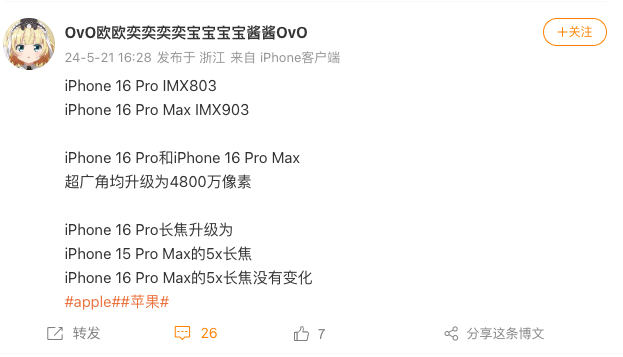
Google Photos is reportedly working on a new feature that will automatically create a “Cinematic Moment” for users. The Cinematic Moment feature is similar to the Cinematic Photos feature, which allows users to create 3D viewers of flat images. However, the new Cinematic Moment will work on videos rather than still photos. Google Photos will automatically create a Cinematic Moment by selecting a part of a video and applying a slow-motion effect to it. The process will be automatic, and users will not be able to manually create a Cinematic Moment the same way they can create Cinematic Photos. (Android Headlines, Android Authority)
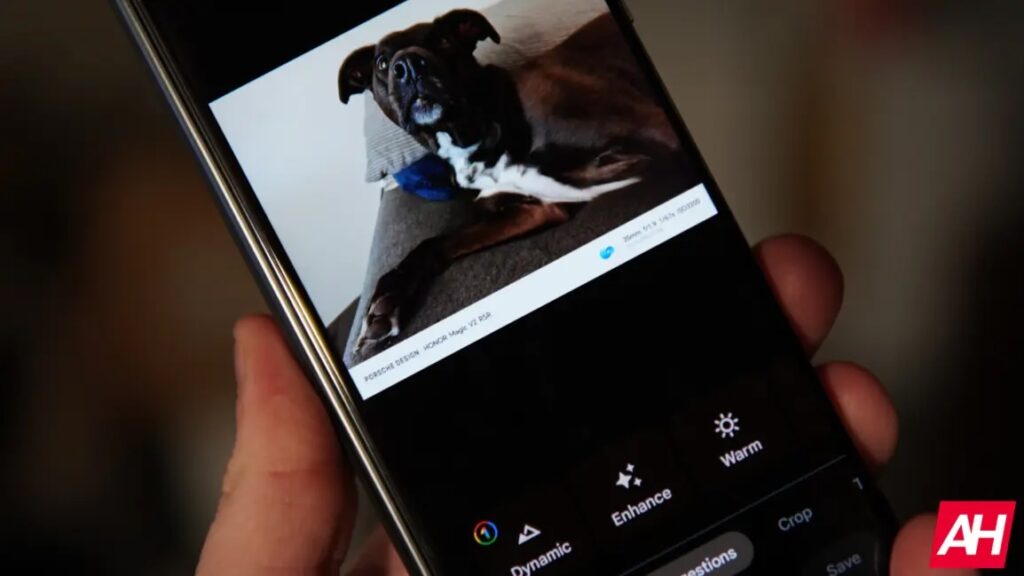

According to TF Securities analyst Ming-chi Kuo, the energy density (Wh/kg) of the battery cells of Apple iPhone 16 Pro Max will increase, which has the benefit of longer battery life with the same battery size or lower battery size with the same battery life. Stainless steel is not as effective as aluminum in dissipating heat, but it is more robust and less susceptible to corrosion, so in addition to dissipating heat, the stainless steel battery case provides better protection for the battery and the iPhone system. Sunway is a major supplier of stainless steel battery cases. The contribution of this order to Sunway’s 2024 revenue is less than 5%, but due to Apple’s high requirements for stamping production processes, the gross margin is better than that of general metal stamping parts, which is favourable to the profitability of Sunway in 2H24. (GSM Arena, Medium)
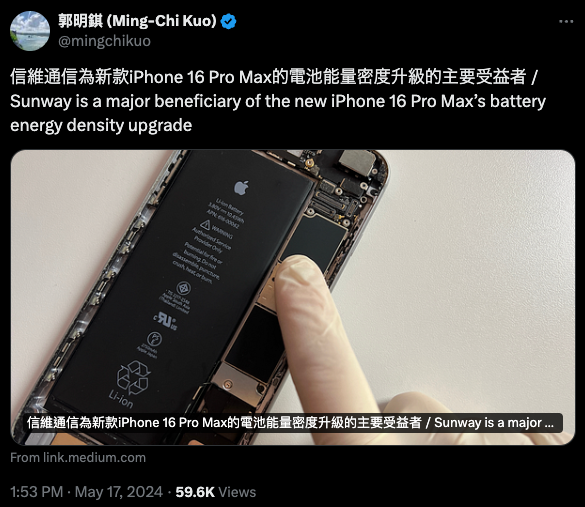
Apple has introduced a highly anticipated feature for new iPads: a dedicated Battery Health menu. This functionality, familiar to iPhone users, provides valuable insights into iPad battery performance and offers tools to optimize its longevity. The Battery Health menu allows users to (1) View Maximum Capacity: This metric indicates the battery’s current capacity compared to its original capacity when new. A lower percentage reflects degradation, and (2) Track Charge Cycle Count: Each complete charge cycle (from 0% to 100%) contributes to battery wear. Monitoring cycle count can help users gauge their battery’s overall health. The Battery Health menu on the new iPads also introduces the 80% Charge Limit feature. This functionality, when enabled, automatically stops charging the iPad at 80% capacity. (GizChina, ShiftDelete)


Two years after launching the Samsung Repair Hub in partnership with Samsung, iFixit is ending its relationship with Samsung. According to the repair company, Samsung’s approach to repairability no longer aligns with its own. The company went as far as to say, “We let them convince us they were serious about embracing repair”. Samsung has confirmed that it will continue offering repair parts for its devices through a website called Samsungparts.com powered by another repair provider called Encompass. (Android Authority, Android Authority, iFixit, The Verge)
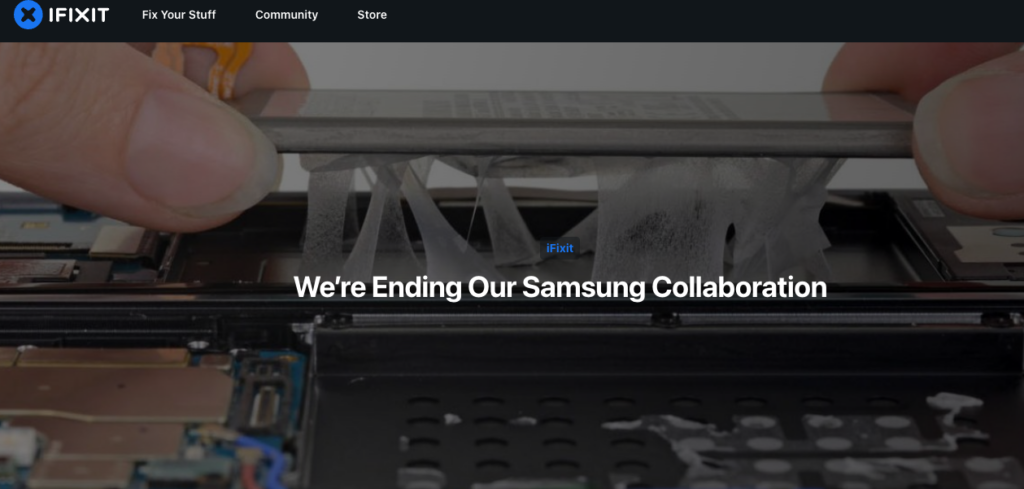
After a court ruling, Lenovo and its subsidiary Motorola are facing a ban in Germany. The legal dispute is between Lenovo and the US-based InterDigital over a patent infringement regarding WWAN modules. These modules enable wireless mobile connection in smartphones and other portable devices. As a result, all devices supporting GSM, UMTS, LTE and 5G connectivity will not be allowed on the German market. (Android Central, GSM Arena, Wiwo.de)

According to IDC data compiled and presented by AltIndex, Samsung shipped 2.93B smartphones from the 1Q14 to 1Q24. The company is by far the most prolific smartphone maker, as Apple fell short by around 700M shipments. Apple, which is the 2nd largest smartphone maker by shipments over the last decade, recorded 2.2B iPhone shipments. (Android Headlines, ALTindex, SamMobile)
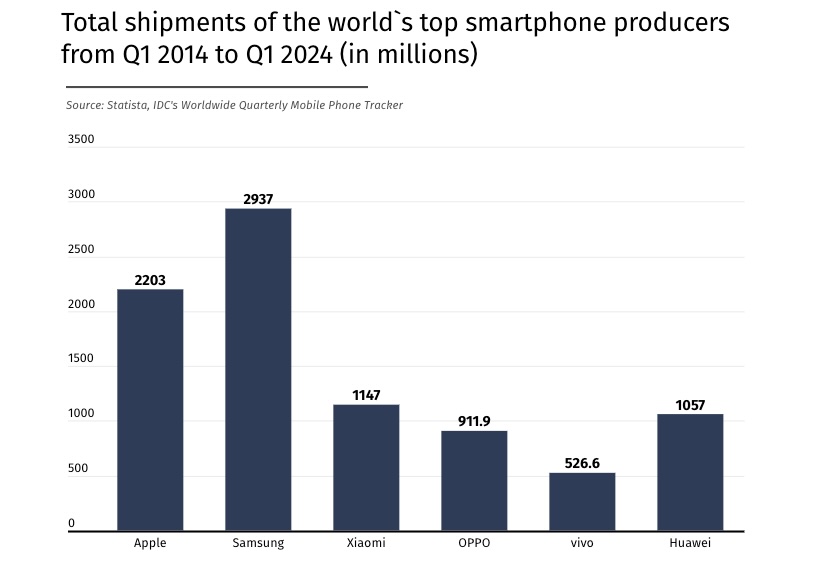
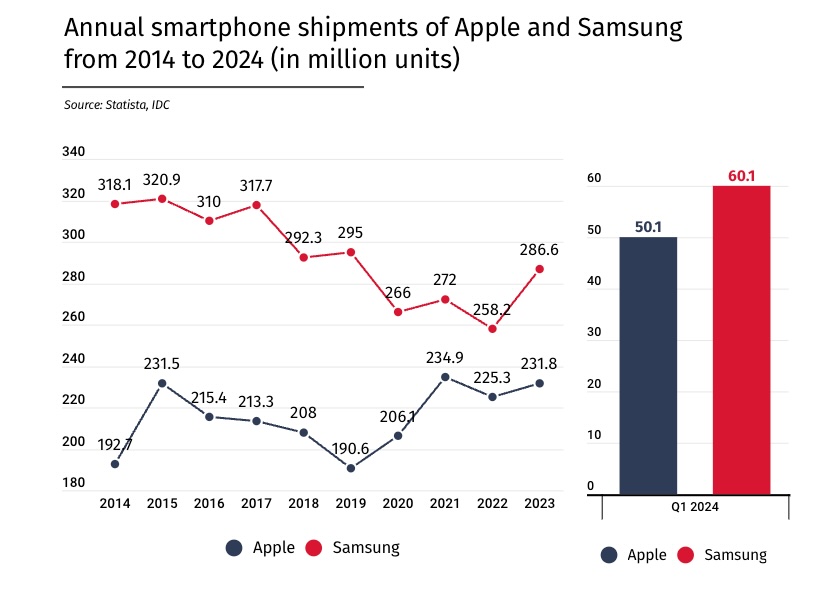

The US pricing of Samsung Galaxy Ring will allegedly be in the USD300-350 range, while it India it will be around INR35,000. there will be a monthly subscription “under USD10” to Samsung Health. This is hinted by Samsung Electronics VP Dr. Hon Pak before. Fitbit Premium is USD10 / month or USD80 for a full year, Apple Fitness+ is the same price and the Oura Ring has a Membership subscription too – USD6 / month or USD70 / year. (GSM Arena, Twitter, Android Authority)
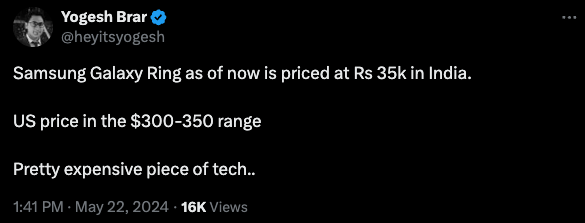

Sony published its most recent financial earnings for fiscal year 2023, announcing that it managed to sell 20.8M PlayStation 5 (PS5) consoles during the (fiscal) year. This is slightly below the revised sales target of 21M that the company set some months ago. As revealed in the supplemental information that Sony has released, 4.5M PS5 consoles were sold during 4Q23 of the fiscal year. For reference, Sony managed to sell 6.3M consoles during the same quarter last year. (Android Headlines, Sony, WCCFtech)


Humane Inc. is reportedly seeking a buyer for its business. The company is reportedly working with a financial adviser to assist with the sale and is seeking USD750M-1B from prospective buyers. The company previously raised USD230M from investors, including OpenAI’s Sam Altman. While Humane had said it would improve the AI Pin over time with software updates, founders Imran Chaudhri and Bethany Bongiorno have largely remained silent about the product and the company’s future. (Android Authority, Bloomberg, The Verge)
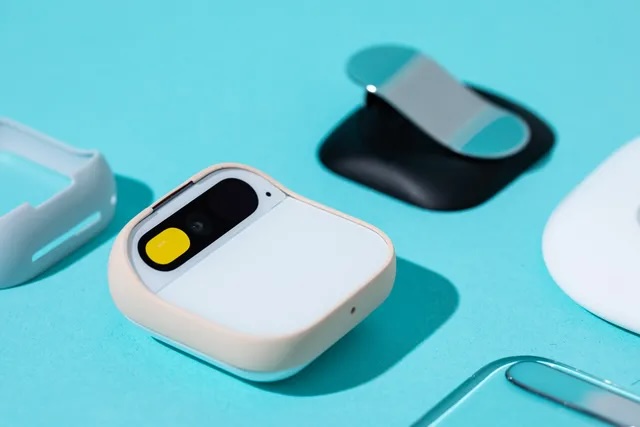
To facilitate the deployment of Gemini Nano on devices, Google created a new system service in Android called AICore. AICore simplifies things for developers by handling Gemini Nano model downloads/updates and leveraging on-device hardware to accelerate inference when apps call the Gemini Nano API. Google has revealed some of the companies it allowed to have early access to the AI Edge SDK for Android. These early adopters include Patreon, Grammarly, and Adobe. Google is set to debut a more powerful version of Gemini Nano, called Gemini Nano with multimodality, on its upcoming Pixel 9 series. Current Gemini Nano models come in 1.8B or 3.25B parameter sizes, while the new model will come in a 3.8B parameter size and also support audio and image processing. (Phone Arena, Android Authority)
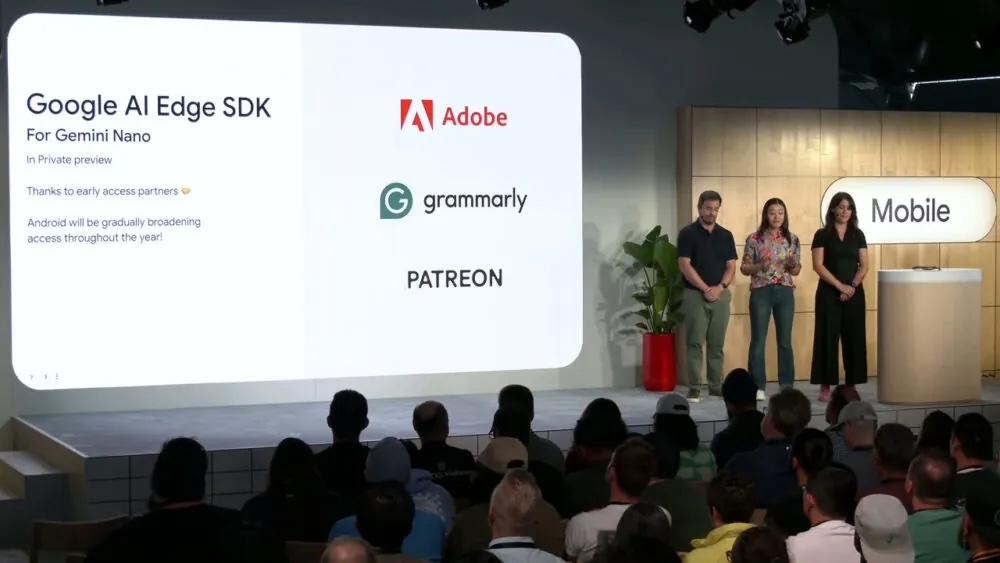
Adobe is adding an artificial-intelligence-powered Generative Remove feature to its Lightroom photo editor. Lightroom’s Generative Remove uses Adobe’s Firefly AI engine to smoothly replace unwanted elements. Simply paint over the area you want to remove and Lightroom will send that information to Adobe’s Firefly servers, which then crunch the data and send it back. Unlike Adobe Photoshop’s Reference Image feature, which launched less than a month ago and allows users to generate new images using Firefly, Lightroom’s AI features are very much focused on a photographer’s workflow.(Android Authority, Adobe, Adobe, DPReview, Wired)
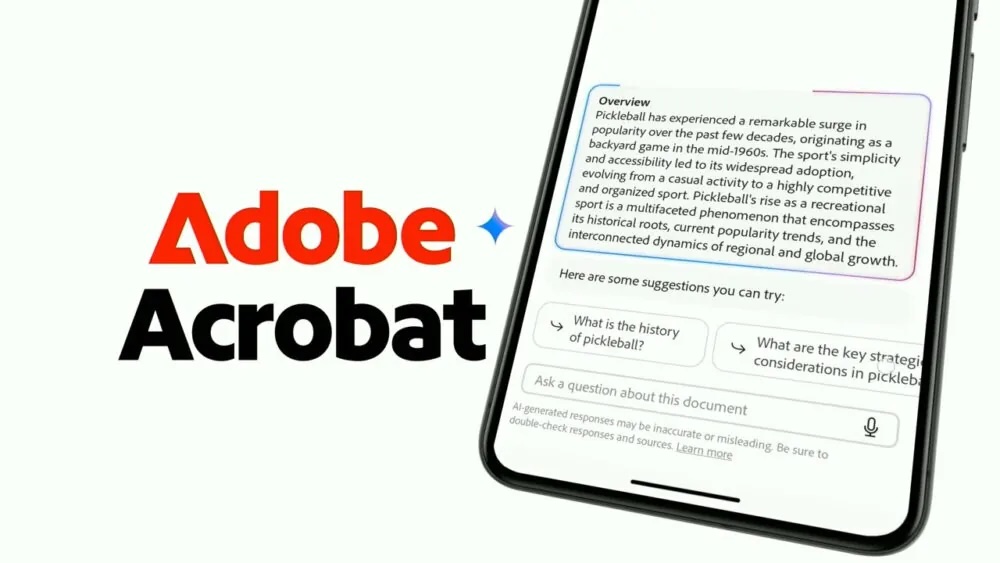
Microsoft has partnered with Truecaller to create AI-generated assistants. These assistants will actually imitate user’s voice. Truecaller is an app that blocks spam calls in order to help user avoid scams. Along with blocking calls, it has a feature that gives user a personalized assistant that will answer calls for the user. Truecaller has partnered with Microsoft to implement Azure AI Speech into its service. With this integration, users are able to create an AI version of their voice to use as the assistant. (Android Headlines, The Verge, TechCrunch, Truecaller)
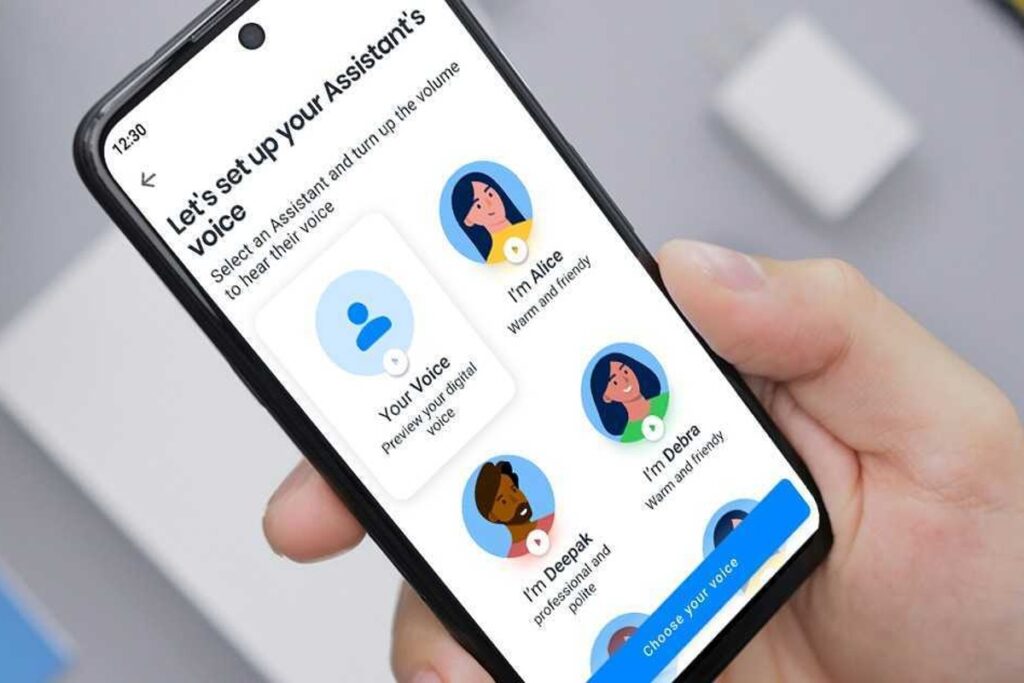
Meta and Google are reportedly making some major offers to Hollywood studios in an effort to secure licensing agreements that could boost their capabilities in AI-generated video content. Both companies have put forward deals worth “tens of millions of dollars” to the studios, although the final outcome of the negotiations remains uncertain. While Netflix and Disney are reportedly cautious about licensing their content, they have shown interest in exploring alternative forms of collaboration. In contrast, Warner Brothers Discovery seems more receptive to the idea of licensing certain programs. (Engadget, Bloomberg, Hypebeast, Firstpost)